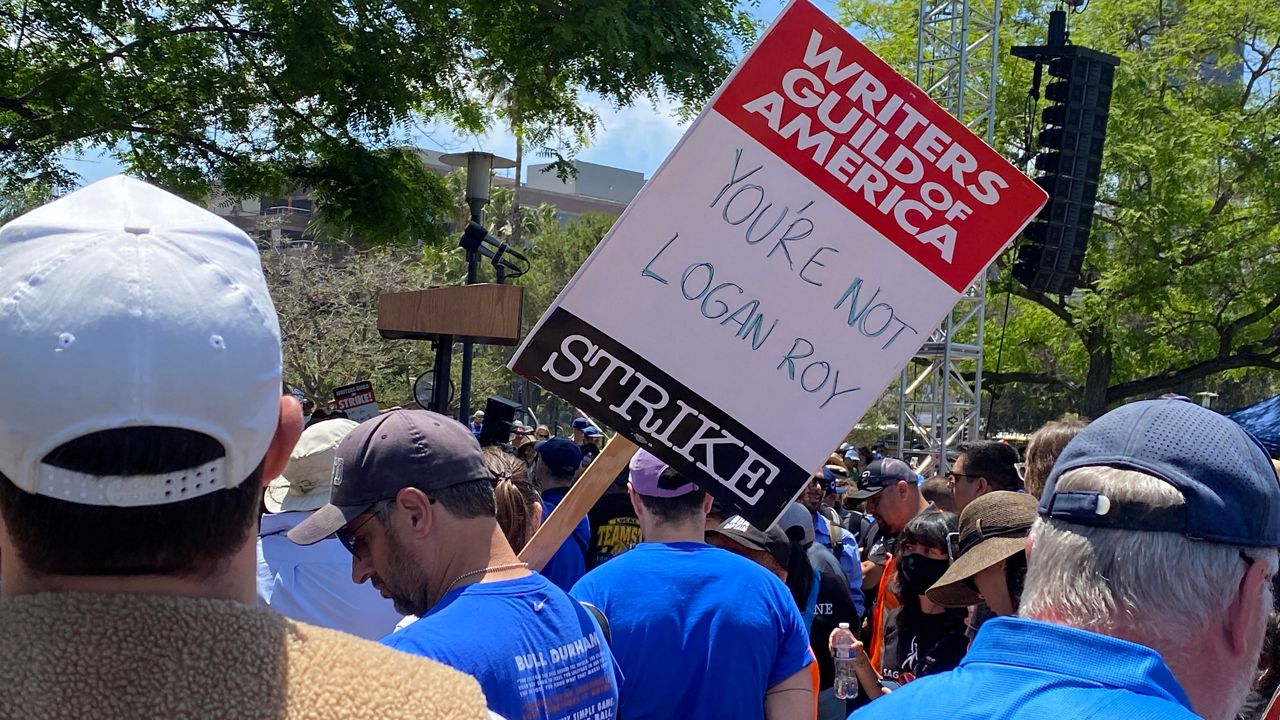Carrying picket signs that read “Welcome to WGA-Chella,” “Streamers Ain’t Got Souls” and “One Month Away From OnlyFans,” members of multiple labor unions representing the film industry gathered Wednesday to rally support for the Writers Guild of America strike.
The union representing 11,500 television, film and game writers has been picketing the Alliance of Motion Picture and Television Producers since May 2, demanding higher residuals from streaming media and guarantees that artificial intelligence won’t be used to replace them.
As the strike entered its 51st day with no resolution in sight, at least 2,000 members of eight different Hollywood unions representing directors, musicians, animators, actors, film crews, truck drivers — even strippers — showed up to rally for their co-workers.
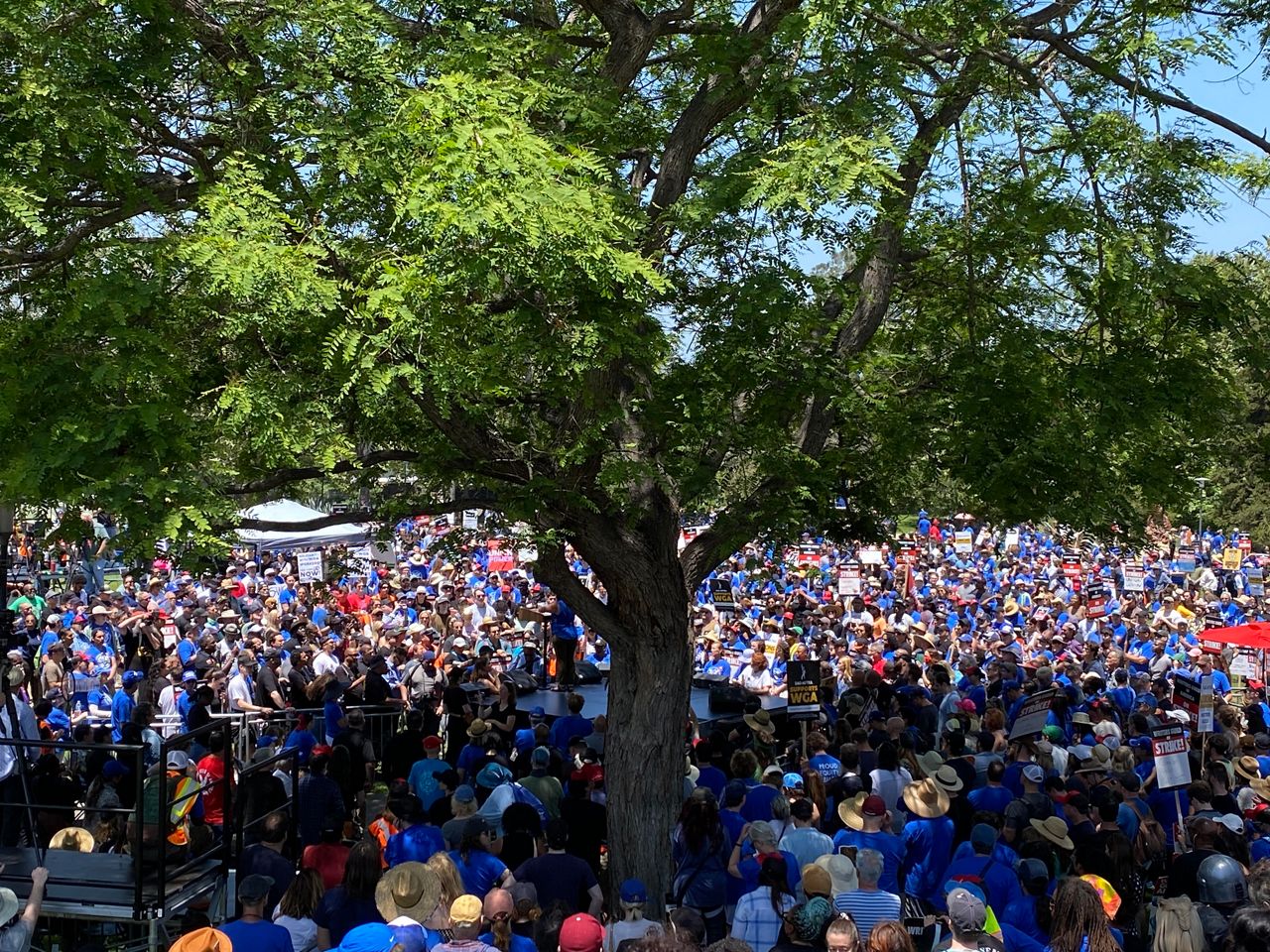
“This is an unprecedented level of support that we have never seen before,” writer Adam Conover told a sea of Hollywood workers who had assembled near a Hollywood sign knockoff that read “WGA Strong.” “That is why we are going to win, and we are going to win because they need us.
“Writers are the ones who stare at the blank page,” he said. “We’re the ones who invent the characters and the stories and write the jokes that their audiences love. They have nothing without us. Every dollar they make begins with us.”
Conover pledged the union will stay on the picket lines until the AMPTP has met the WGA’s demands, which include at least ten consecutive weeks of work for staff writers and add up to $429 million more in annual pay.
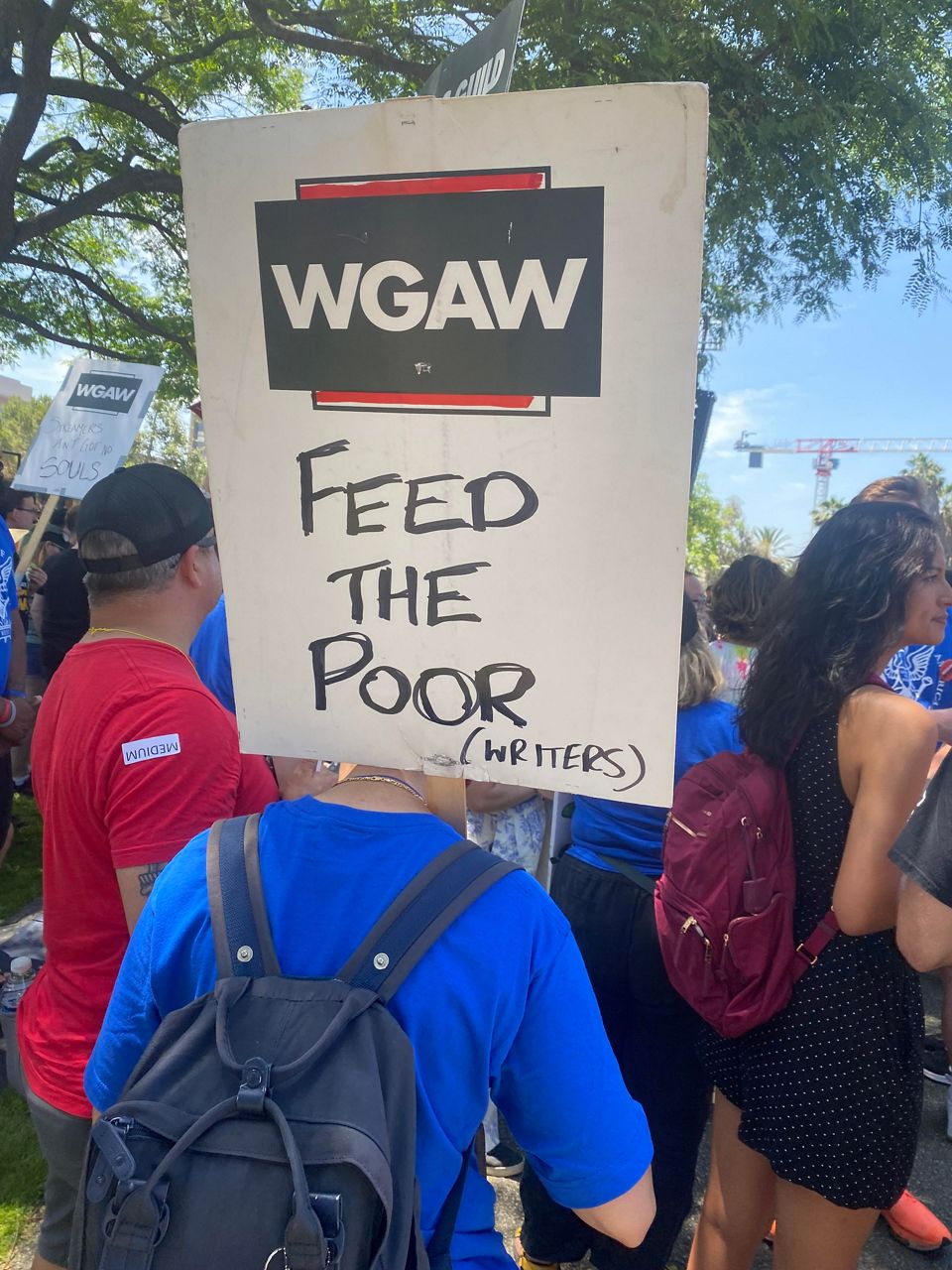
WGA negotiations with the AMPTP broke down May 1, after the AMPTP declined to meet the guild’s demand for mandatory staffing and employment duration minimums. The AMTP said in a statement shortly after the WGA strike began that it is prepared to improve on its offer but is “unwilling to do so because of the magnitude of other proposals still on the table that the Guild continues to insist upon,” the Alliance said in a statement.
“One day stronger,” Conover yelled, holding the mic out to the Hollywood workers who had gathered on the sprawling grass outside the La Brea Tar Pits Museum in Los Angeles. “One day longer,” they yelled in response amid a cacophony of whistles.
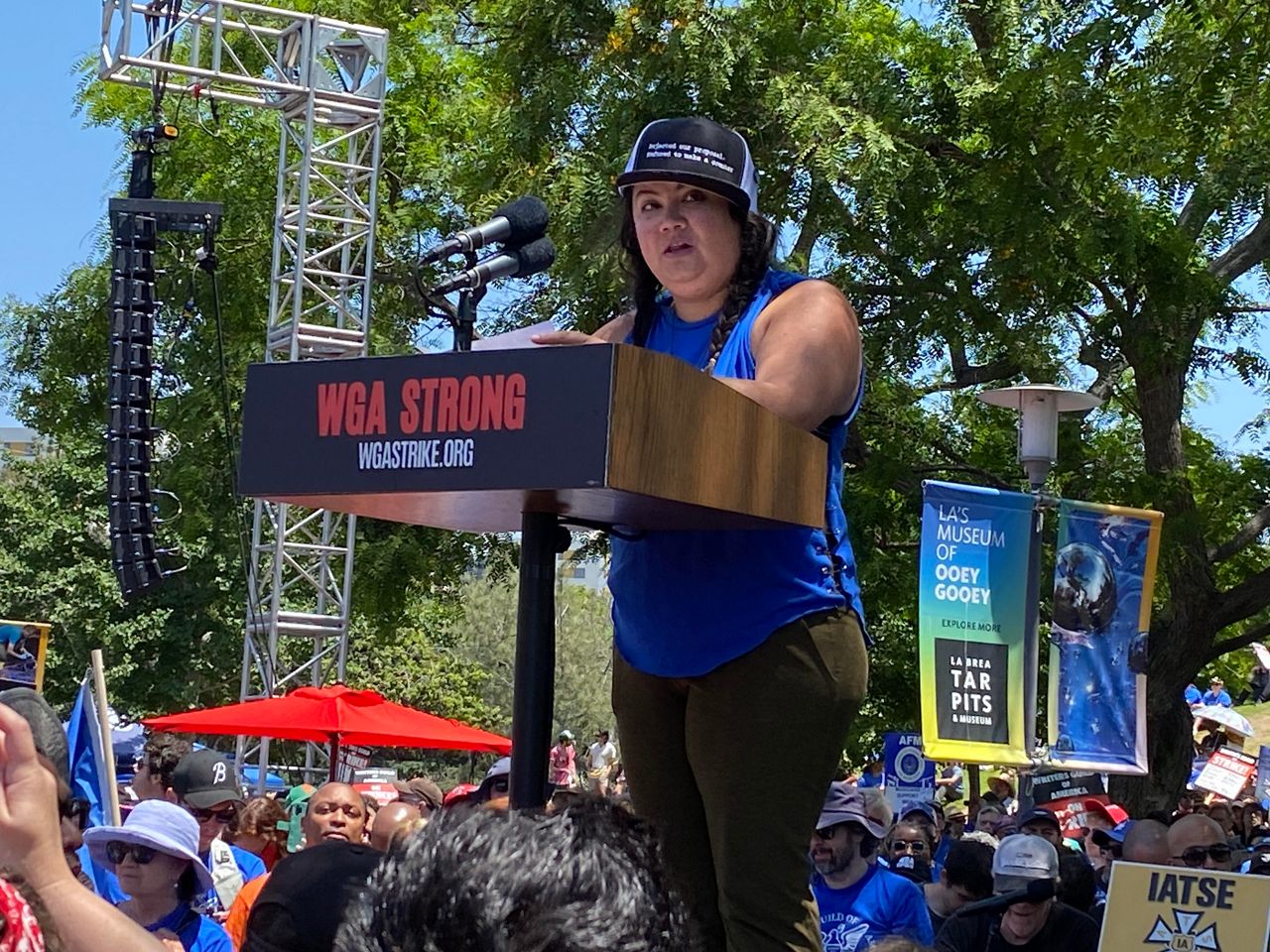
“Contrary to the public perception, the majority of Hollywood writers have historically been middle class,” WGA Board Member and TV writer Liz Alper told the crowd. “But when streamers like Netflix, Hulu, Amazon and Apple came into our industry, the studios exploited the changing landscapes of our business to increase their profits at the expense of our livelihoods.
Alper said Paramount Pictures, Sony Pictures, Warner Bros. and the other Hollywood studios and television networks that make up the AMPTP took in $1.3 trillion in revenue last year.
“We are made to write at a breakneak, unsustainable pace with our pay being held hostage for multiple rewrites so that our employers can pay us as little as possible for the very work that will make them record-breaking profits,” she said, adding that the WGA strike represented an “existential crisis.”
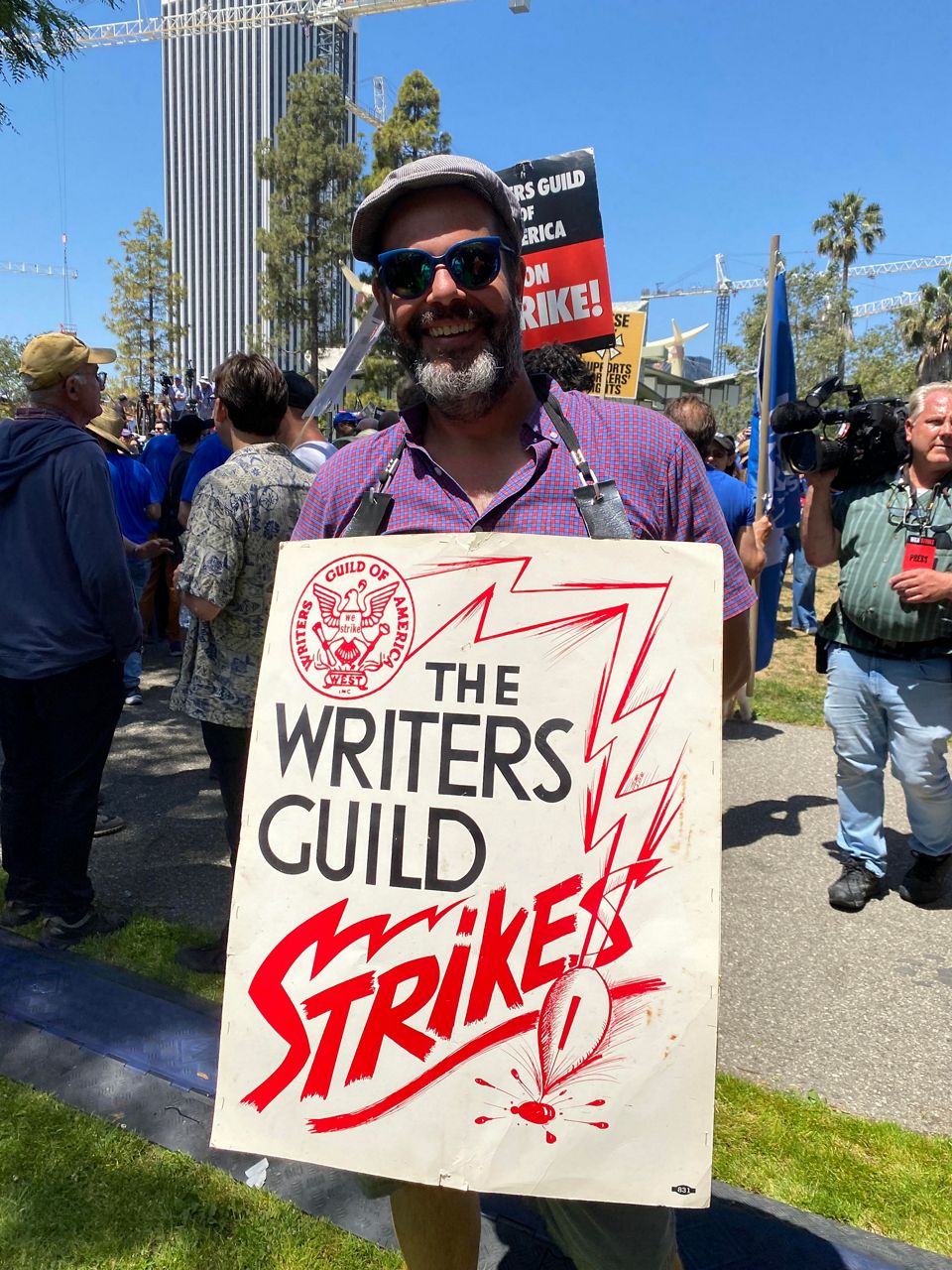
Jacob Estes is a member of both the Writers Guild of America and the Directors Guild of America who showed up to the rally wearing a sandwich board that read “The Writers Guild Strikes!”
“The directors only get to flourish when the writers create work for them,” Estes told Spectrum News. “If producers decide that they’re going to start using AI to create material, that’s also a terrible thing, so we need to fight for our rights. Period. Our writer’s rights, director’s rights, actor’s rights, they’re all the same. We’re really just artists who would be exploited like Uber drivers are being exploited if we didn’t fight.”
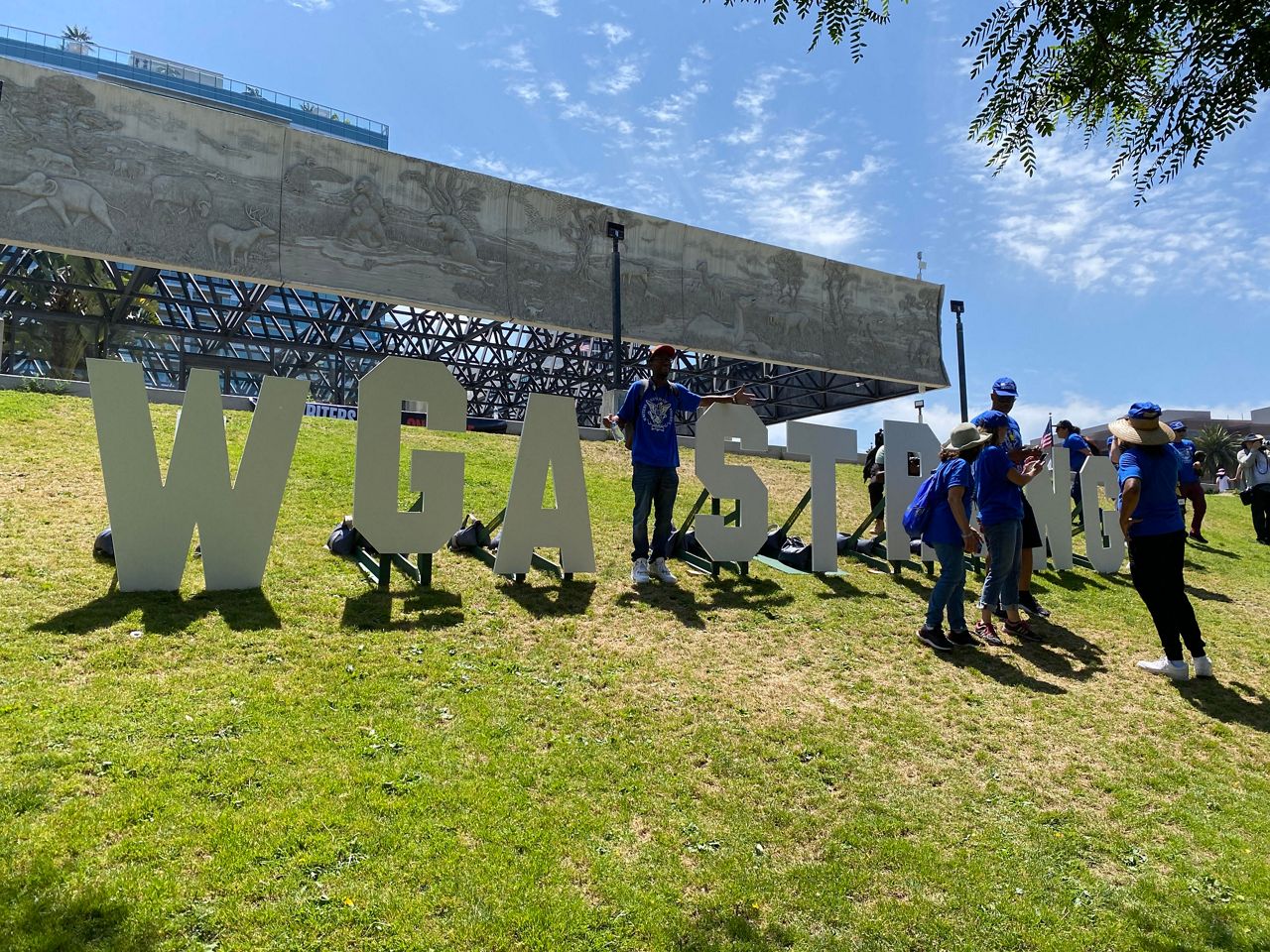
The last time the WGA went on strike was from November 2007 through February 2008. The 100-day strike cost the Los Angles economy $2.1 billion, according to the Milken Institute, but ultimately guaranteed that WGA writers would be hired for streaming shows and earn a greater percentage of payments from digital distribution.
“In 2007, we were fighting for something that required imagination because it was something in the future. Now it’s over 50% of the industry,” WGA Board Member Dante Harper told Spectrum News. “We’re all casualties of the streaming war.”
Members of other guilds rallying support for the strike not only feel the writers’ pain but understand the critical role they play in their own professions.
“We need them to write the script so we can work,” actor Melvina Starks told Spectrum News. A stand-in on the ABC show “The Rookie,” she’s a member of the Screen Actors Guild, which is poised to go on strike July 5th for many of the same reasons as the writers.
The Screen Actors Guild is lobbying for higher residuals from streaming and restrictions on the use of artificial intelligence to prevent the use of actors’ images without payment.
She has been striking with the WGA for almost eight weeks, she said, at the studios for Warner Bros., Disney, Paramount and Sony. Wednesday’s event was almost a party atmosphere with a throbbing sound system pumping Gloria Gaynor’s “I Will Survive” and Tracy Chapman’s “Talkin’ Bout a Revolution.”
“It’s over the top,” Starks said of the crowd’s size and enthusiasm. “Like everybody’s coming together. This is our mega march right here.”



